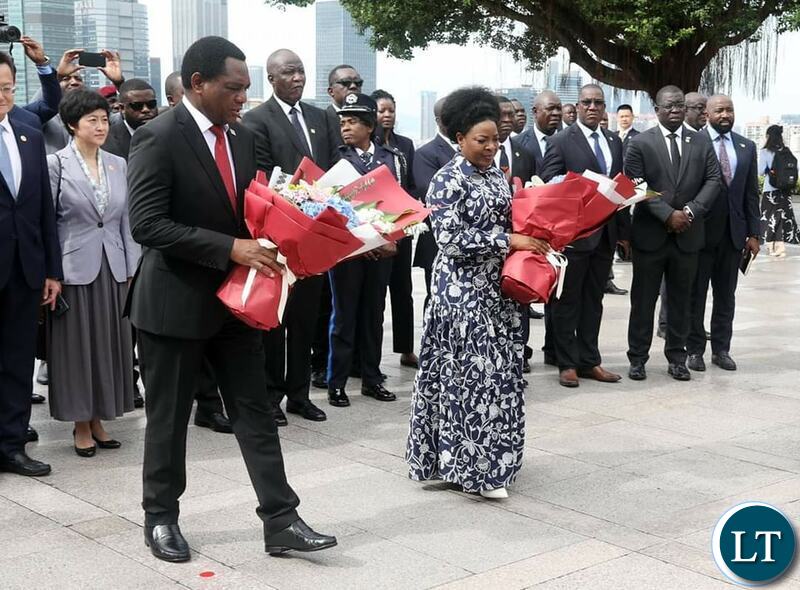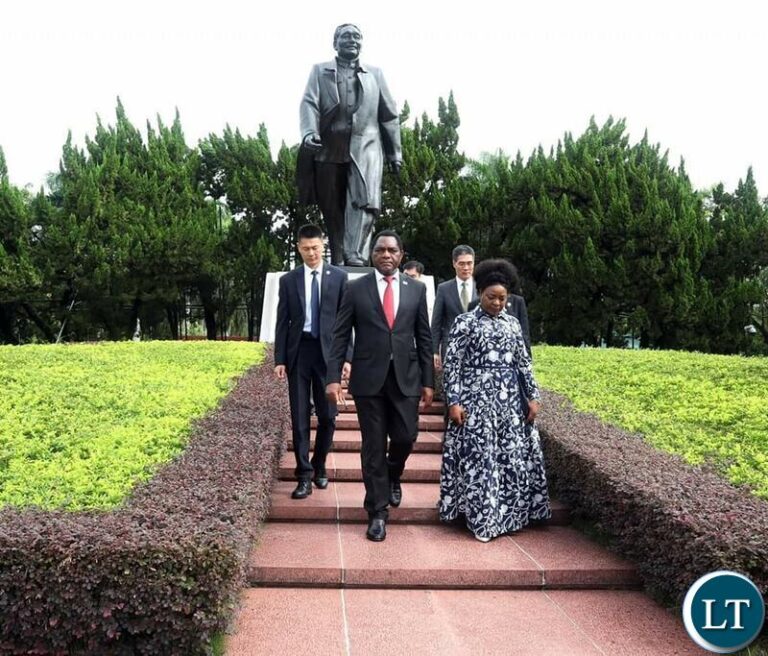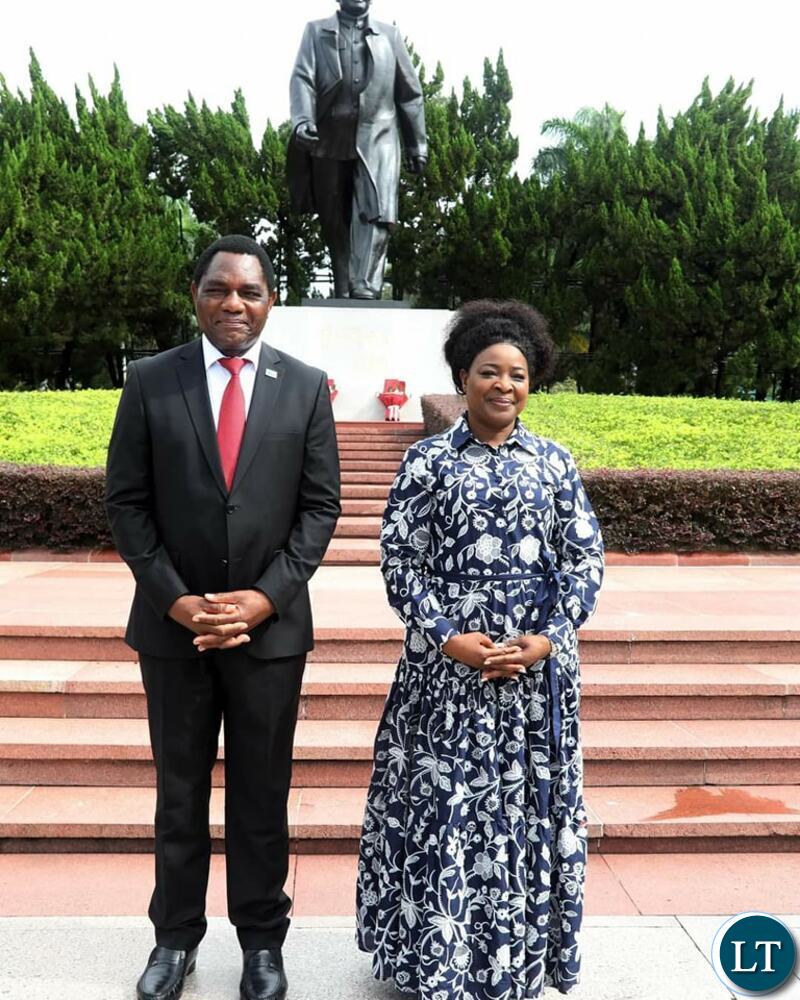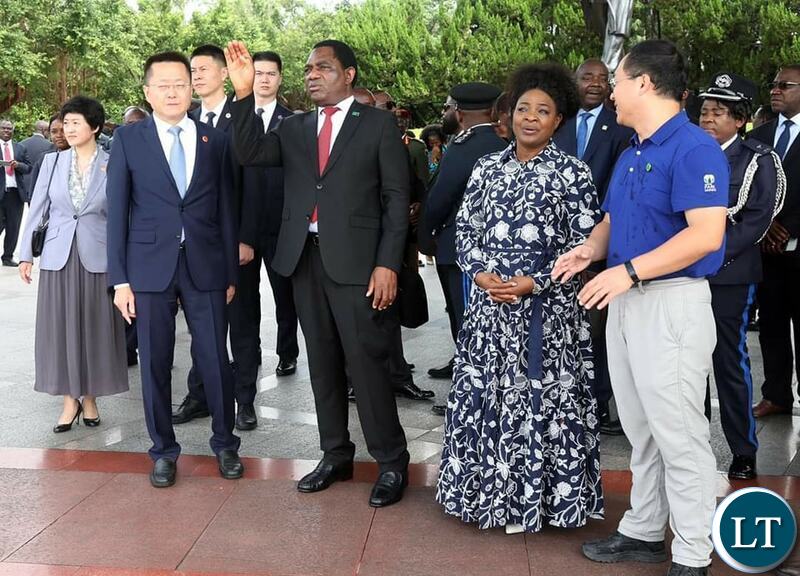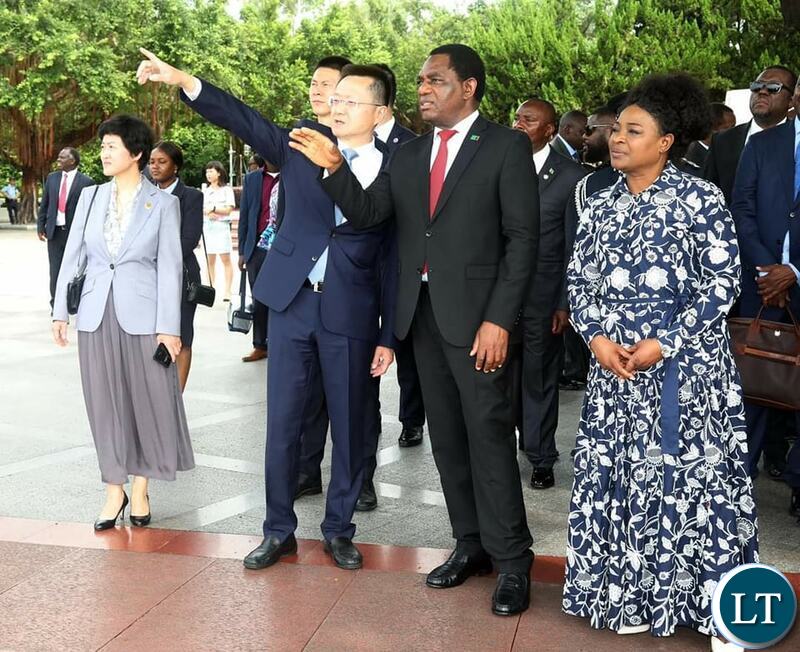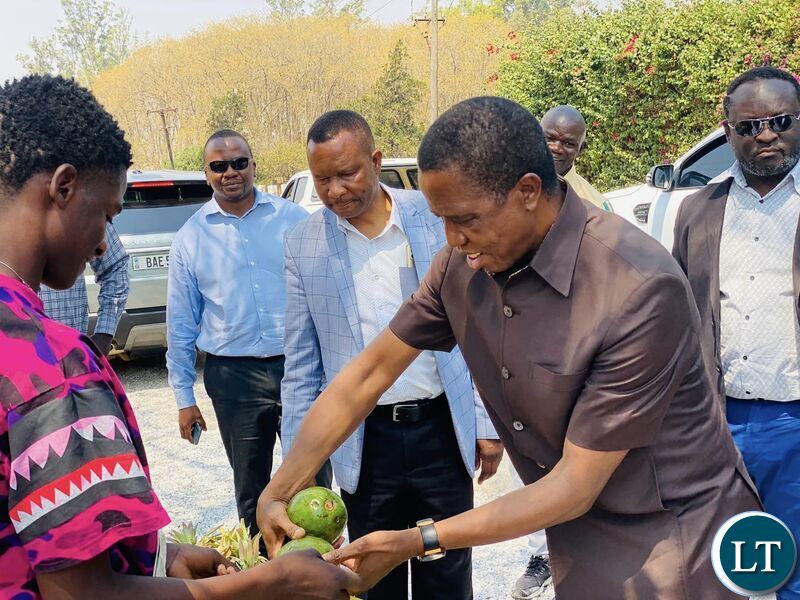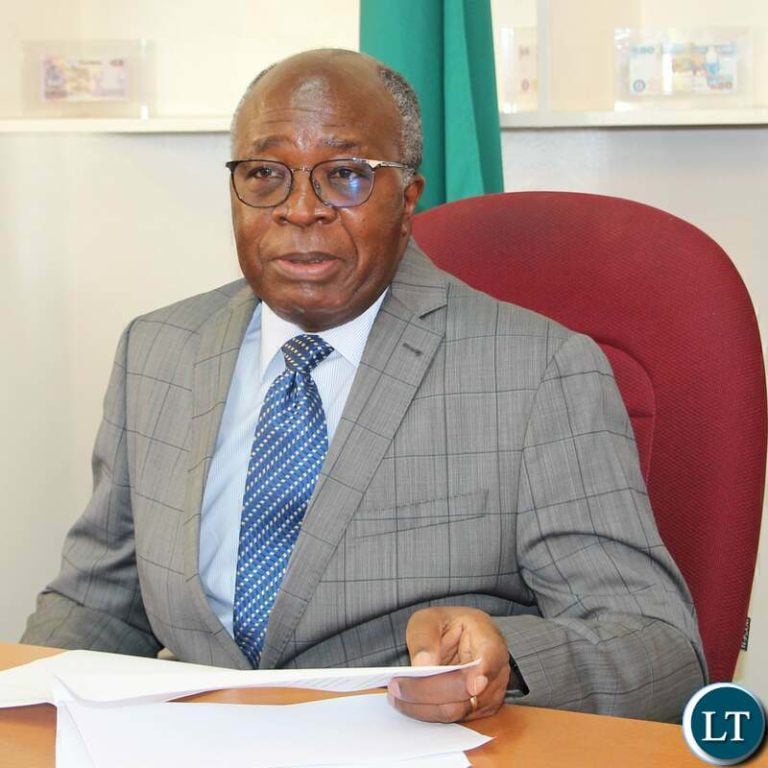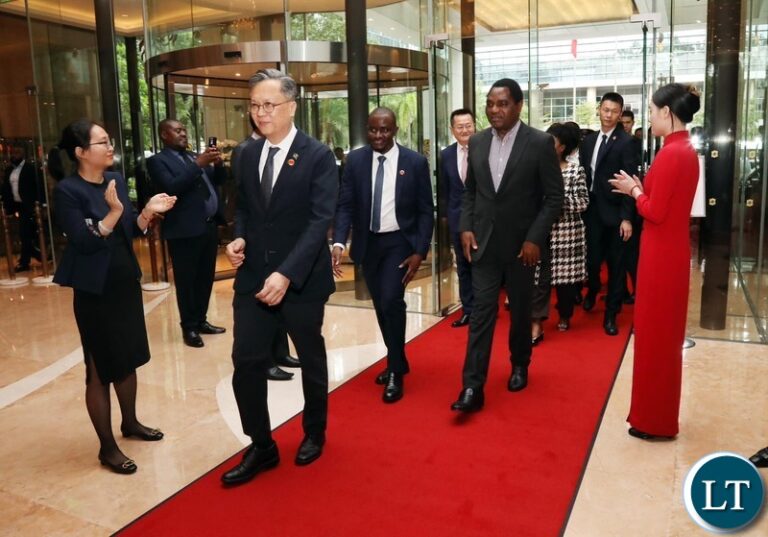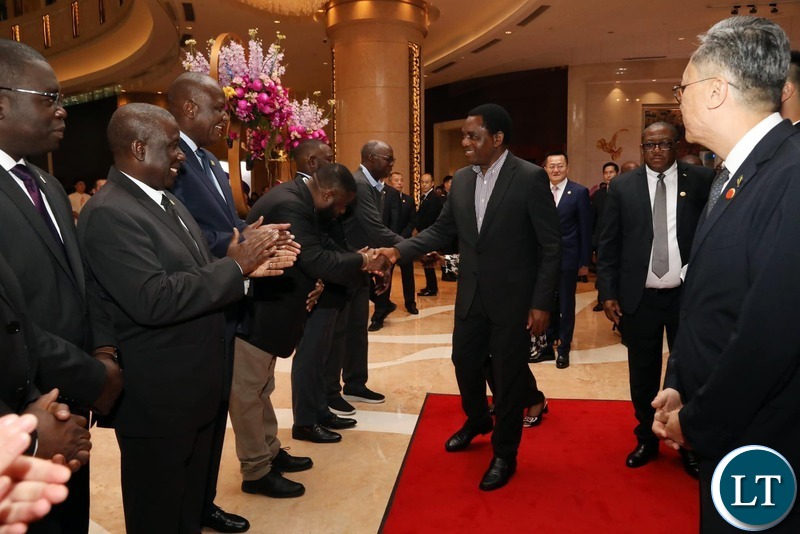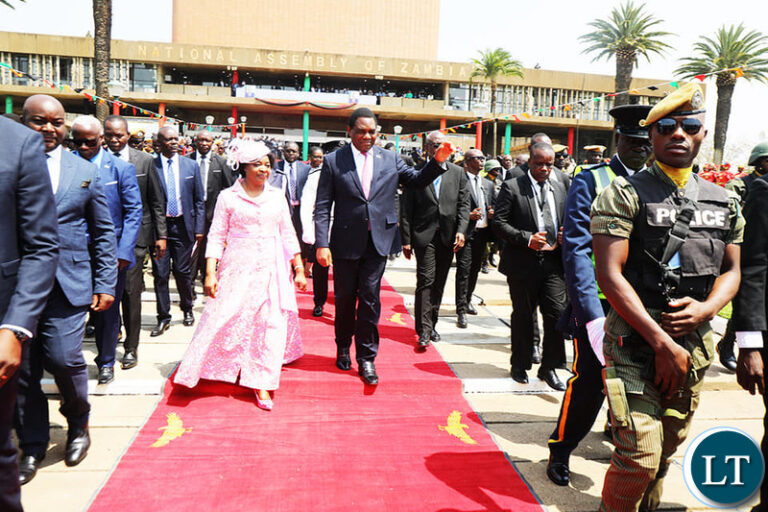By Chimwemwe Mwanza
As hunger and poverty begin to take root in Zambian households, it’s easy to see despondency in the townships and some sub-urban areas. Throw in economic and social hardships to a tempestuous political environment, the crafty are resorting to telling their challenges on social media platforms effectively projecting a narrative of a failing state. It’s little wonder that scenes of women hoisting tu Pamela and shouts of Njala in the way of the Presidential motorcade, characterised the President’s recent visits to townships.
Amidst this uproar, visuals of Socialist Party leader Fred Mmembe emerging from a holding cell and punching a clenched fist towards his supporters that kept vigil at a police station have been doing the rounds. In Emmanuel Mwamba’s case, the lucid opposition politician went as far as circulating images of a sjambokked back – resulting from his resistance to heed to what he claims was an illegal arrest. As the saying goes, an image tells a thousand words.
Raphael Nakachinda, Munir Zulu, Edith Nawakwi, Sean Tembo and now Esther Lungu, the former first lady, among a horde of other politicians or associates of the opposition have also been in detention for varying offences – much to the illumination of social media. Mind you, these visuals are now imprinted in the minds of hungry masses, some of whom are still looking for a political messiah. Curiously, it’s worth noting the unity in the opposition – especially when their leaders are charged or summoned by police.
Chishimba Kambwili’s recent pronouncements best explains the motivation behind this unity. ‘This government should know that an arrest or injury to one opposition leader is an injury to all,’ he quipped. Fact is, never in the history of our politics has the opposition been this united against a sitting government – to the extent that some have had to put aside serious personal differences in support of their cause. For context, take a step back to pre – August 2021 elections, who could have predicted or foreseen this burgeoning bromance between Fred Mmembe and Chishimba Kambwili?
It was Kambwili – who in his position as Minister of Information and Broadcasting in the previous dispensation – initiated the process to close Mmembe’s Post Newspaper. By the time Kambwili was expelled from PF – a party to which he has since been readmitted, The Post was toast. What then should we make out of this newly found bromance? Well, there are no permanent enemies in politics. But is this comradery based on shared political and moral values, or could this be a ruse to assembling a coalition of the walking wounded whose raison d’etre is to dislodge the incumbent from power? You be the judge.
Is the opposition really under siege?
You see, Kambwili’s rallying cry for unity in the opposition is not only troubling but is deeply flawed in logic. At best, he infers that opposition leaders are irrational and incapable of discerning right from wrong. So, for him nangu ba mwikate bu pompwe, he expects the rest of the opposition to dash to Mikomfwa police station just to create a spectacle? Ayikona man, ala insoni munyinane, ebuntu. To some, circulating visuals of themselves in handcuffs is a mark of bravado. You see, it takes chutzpah to create such scenes but one could well argue that this is a character trait that some of our politicians have perfected over the years. Is this necessary?
We shouldn’t sink so low to becoming a nation that celebrates brazen acts of illegality. Agreed, there has been instances where the police have been unjust to the opposition – to the extent of responding recklessly to lousy click baiting and taunting by political actors. However, citizens ought to develop a heightened sence of alertness so they can easily separate facts from fiction.
As a matter of fact, this unity on display by the opposition has no grounding. It’s premised on politics of outrage which unfortunately makes for viral content. And those schooled in the art of deception will attest that that there is a thin line between perception and reality. Reality in this case being that the President through his own unfiltered pronouncements is in fact the one festering the narrative of ‘an opposition under siege.’ Unprovoked, he blew the lid on his imingalato (tricks up his sleeve). In his own words, he wants the PF asphyxiated to the last breath. That said, is it true then that the opposition is under siege?
Wynter Kabimba – the straight-talking leader of the Economic Front provides an interesting perspective. In a recent interview with Daily Revelation – which is an online publication, Kabimba cautions that not every opposition leader arrested to date is under persecution. ‘I take a different view. I personally think that every citizen of this country including opposition political party members must abide by the law in whatever they say, do or act.’ The inference in this assertion being that there is sufficient reason to believe that some opposition leaders are deliberately breaking laws for self-serving interests.
Is there a credible alternative to the UPND?
We have conditioned our body politic to investing heavily in Messianic politics – in the process creating a false and delusional impression that a single individual can solve Zambia’s challenges. Yet we forget that politicians are fallible humans who are prone to mistakes. We have also proven that creating cults of leadership only serves to entrench a culture of non-accountability – precisely why the Messianic approach or motivation to choosing leaders has spectacularly backfired on us.
But most worrying is the level of opportunism in the opposition. They seem readily prepared to do anything including, compromising their moral consciences just so they can ascend to plot 1. Without disregarding the impact on ordinary folks, the scarcity and rising cost of ubunga has strategically become the soft underbelly. It’s gravely despicable to use the anguish of masses to push self-serving interests. Beyond criticism, what solutions has the opposition provided to help ameliorate rising food prices?
You see, what our leaders won’t tell a struggling family in Kanyama, Kwa Nagoli or Wusakile is that the Russia and Ukraine conflict among a horde of other factors is disrupting food supplies across the globe. Not only are these countries large exporters of grain, but they rank among the biggest producers of phosphates and other elements used in production of fertilizer. Pricing of fertilizer impacts production of maize, and this has a knock-on effect on the price of ubunga.
In addition, it is fact that the souring cost of food prices is not only endemic to Zambia but the entire SADC region. It is also correct that the impact of Covid-19 still has a lingering effect on the global supply chain. In our case, our economy is heavily reliant on imports to keep our low manufacturing base humming, imagine then the contagion effect on the economy?
For once, can somebody take a high moral ground and articulate some of these challenges to the suffering masses. I doubt there would be any takers – doing so would be akin to helping loosen a chokehold on one of the UPND’s Achilles heel. In other words, let’s fold our arms so that hunger becomes the motivation that drives the electorate to the polls. And voila there will be a new Messiah in State House.
Makes you wonder. Other than advancing self-fulfilling ambitions, is there a credible alternative among opposition leaders to the incumbent? Go figure.
About the Author: Mwanza enjoys reading Political History and Philosophy. He is passionate about socio-economic development. For feedback, email [email protected]
